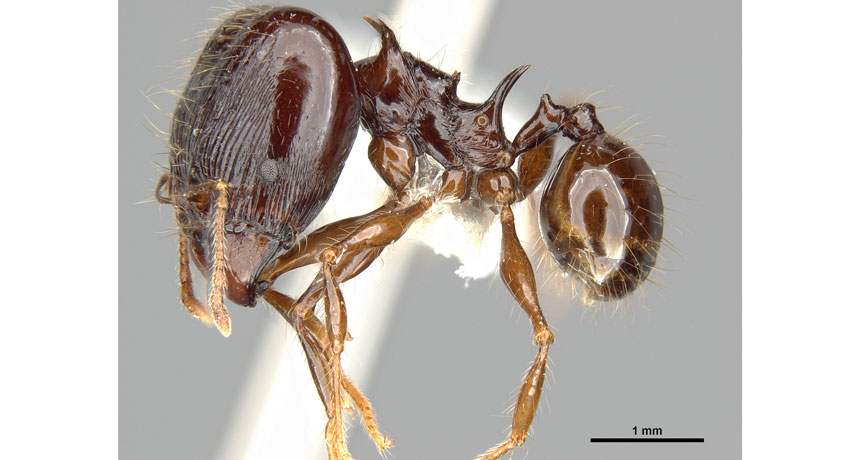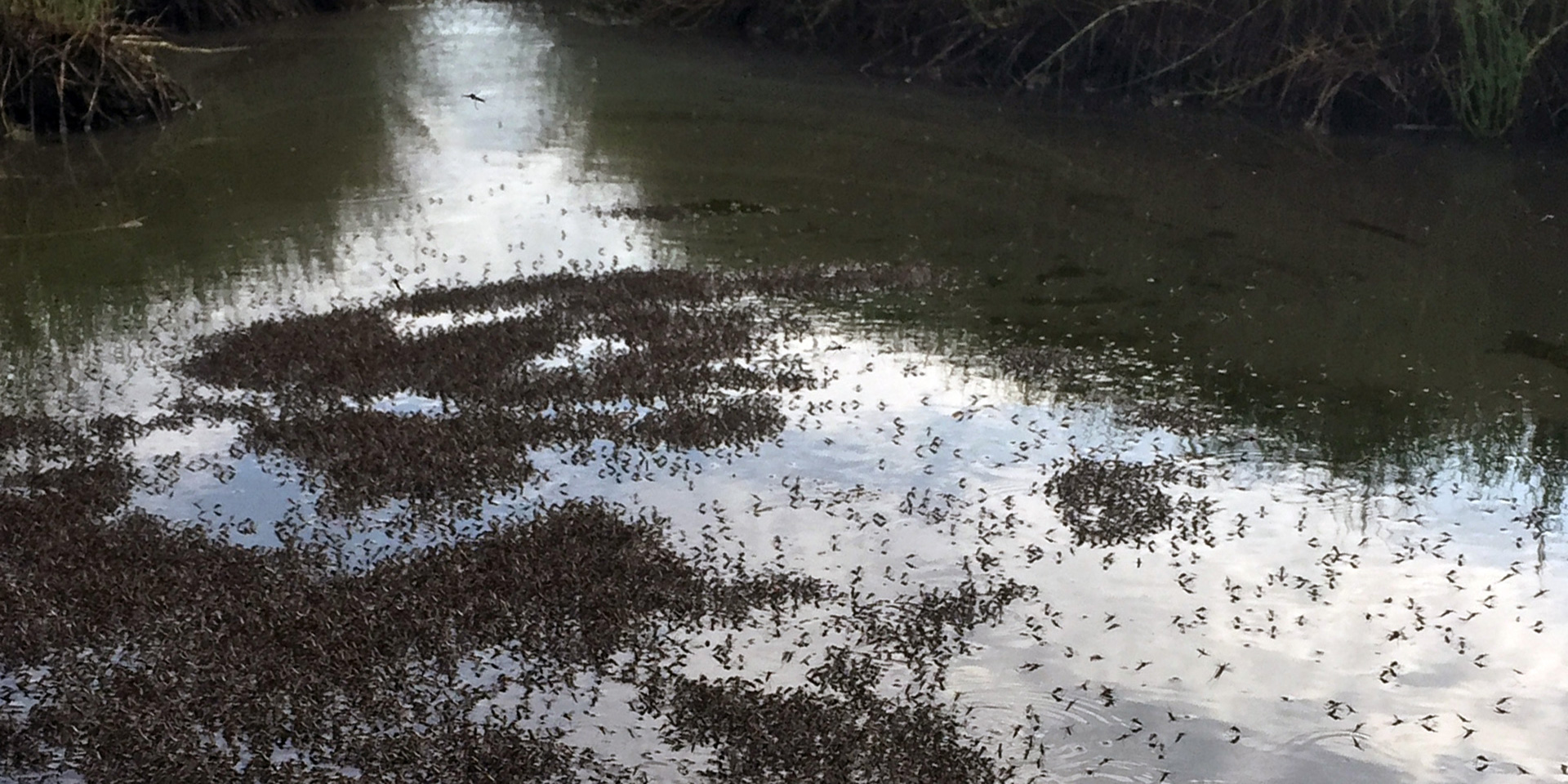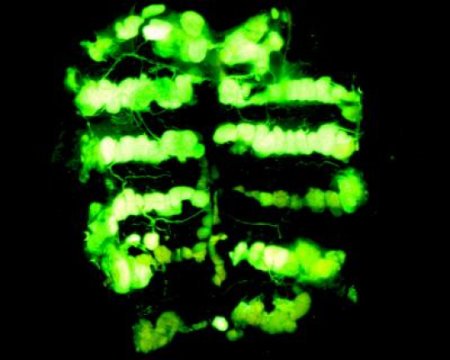The newest and thorniest members of a diverse ant family may have extra help holding their heads high.
Found in the rainforest of Papua New Guinea, Pheidole drogon and Pheidole viserion worker ants have spines protruding from their thoraxes. For many ant species, the spiky growths are a defense against birds and other predators. But Eli Sarnat and colleagues suggest the spines might instead be a muscular support for the ants’ oversized heads, which the insects use to crush seeds. The heads “are so big that it looks like it would be difficult to walk,” says Sarnat, an entomologist at the Okinawa Institute of Science & Technology Graduate University in Japan.
Micro‒CT scans of worker ants with larger heads revealed bundles of thoracic muscle fibers within spines just behind their heads. Worker ants with smaller heads did not have muscles in their spines, the researchers report online July 27 in PLOS One. More research is needed to establish the spines’ function and understand why they evolved, Sarnat says. While buff spines may support big heads, hollow spines probably keep predators at bay, the researchers suspect.
Researchers named the ants after two fearsome dragons, Drogon and Viserion, in the popular book and TV series Game of Thrones.
Source : www.sciencenews.org
Author : Cassie Martin






